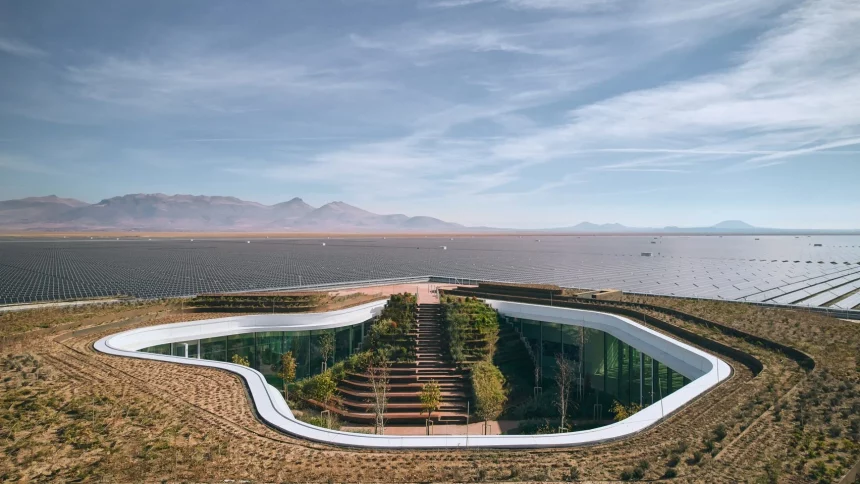
A solar energy installation in Turkey. Environmentalists want to see more of this and less of nuclear.
“While countries like Germany have decommissioned the last of their nuclear reactors Communist and autocratic regimes are just getting started.”
As Turkey houses Hamas and gives up its hope of joining the European Union, it ramps up its collaborations on energy with Russia on nuclear power plants, and now in the news –– with China. Ankara and Beijing said they will finalize a deal on a new nuclear power plant in Turkey “in a few months,” says Turkish Energy and Natural Resources Minister Alparslan Bayraktar who told a Chinese broadcaster during his visit to the country.
While countries like Germany have decommissioned the last of their nuclear reactors, Communist and autocratic regimes are just getting started.
Collaboration between Turkey and China in nuclear energy started in 2016, and since then negotiations have taken place to build nuclear reactors in Turkey, one of which will be located in the Thrace region in the northwest of the country. Local Turks have tried to stop the developments but to no avail.
Bayraktar said the “landmark project” will be finalized with the unknown company and China’s National Energy Administration (NEA).
Read related: Russia builds nuclear power plants with Uzbekistan
Nuclear energy plays an important role in reaching Turkey’s 2053 net zero emission target, according to Turkey. To this end, the country is planning to build nuclear power plants in two other locations after the first plant at Akkuyu, which is under construction in the Mediterranean province of Mersin.
Bayraktar considers three major issues that the country faces in tackling energy markets: security of supply, excessive import dependency, and climate change challenges.
A recent study showed how most young people would accept a higher rate of power if it were supplied by renewable energy. Nuclear energy is not a renewable energy. It is dangerous energy for people and the planet.
He explained that security of supply is essential to meet the growing demand in the country, and much investment is welcomed in various sections of the energy supply chain to cope with this demand growth.
Turkey currently imports almost 70% of its primary energy resources, and the country’s energy policy is actively addressing this issue by promoting local resources, particularly renewables.
Bayraktar said that renewables are the key to addressing all of these issues, along with the addition of nuclear power to the energy mix. Ecological organizations like Greenpeace do not consider nuclear energy to be a renewable energy source.






